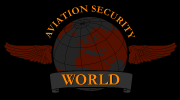Agency Plays Down Plan to Speed Airport Security
The concept, first called "trusted traveler," emerged weeks after the attacks of Sept. 11, 2001, and was popular with some airlines, frequent fliers and lawmakers. But now, the Transportation Security Administration is suggesting that the benefits will range from slim to none, except perhaps for the likelihood that the line waiting to reach the checkpoint will be shorter.
Kip Hawley, director of the Transportation Security Administration, told reporters this week that the concept, now called "registered traveler," was not a priority because it would not cut risk of a terrorist attack. And if private entrepreneurs assembled a package of tools that helped identify threats to security — including background checks and perhaps equipment at the checkpoint that would sniff, scan or otherwise sense explosives — the payoff might be that such qualified travelers would not have to remove their shoes or suit coats, or take laptops out of their briefcases for inspection.
"If we get enough things in there that raise the bar, then we can say, Yes, you can keep your coat on or your shoes, or whatever," Mr. Hawley said.
In fact, a T.S.A. laboratory in Atlantic City is testing a device developed by General Electric, with technology similar to a hospital magnetic resonance imaging machine, that looks for shoe bombs.
General Electric, in addition to being a supplier of airport security equipment, also owns a minority share in the only company now operating a "registered traveler" checkpoint in Orlando, Fla., Verified Identity Pass Inc. G.E. is working on a second device that might let screeners determine with confidence whether a briefcase stuffed with a laptop computer had a bomb in it.
But Mr. Hawley said that if the private companies that want to offer such "registered traveler" services could successfully develop detection technology, his agency would consider buying and deploying it for general use.
After Sept. 11, many aviation experts said checking a traveler's criminal background could determine how much screening was necessary. But Mr. Hawley and others said that terrorist attacks on London buses and subways last summer showed that attackers need not be foreigners or have criminal backgrounds.
Proponents of a registered traveler program are disappointed with the lack of progress.
"You cannot imagine the frustration up here," said Representative John L. Mica, Republican of Florida and chairman of the House Aviation Subcommittee. "We're screening the same people over and over again," he said, arguing that people who have security clearances, are in the armed forces or law enforcement, work as commercial airline pilots, and a variety of others need not be screened.
"It's turned into a farce," Mr. Mica said. "They've gone around the corner so many times, they're running around in circles and they've accomplished nothing."
But the pilot program in Orlando has proved popular. Verified Identity, which charges $80 a year, said it had signed up 23,000 people. Its members go to a dedicated lane where the wait is generally two to four minutes, said Steven Brill, founder of the company. Airports in San Jose, Calif.; Indianapolis; and Cincinnati will follow soon, he said, and he added that his company would soon announce a partnership with a major airline. In February, Hyatt Hotels and Resorts said it would give away memberships to its best customers.
Mr. Brill said that even if the government decided to buy for all security checkpoints the technology developed for the registered traveler program, his customers would still have the better equipment two years earlier, in a process of continuous improvement.
At the moment, the company's security lanes at the Orlando airport offer a "concierge" who helps travelers get their metal objects in and out of bins for scanning, and better bins and tables, Mr. Brill said, but he added that "this program would never succeed if it was just a program that put people at the head of the line."
Mr. Mica, though, said the operation in Orlando, which is near his district, "just puts people at the front of the line, and irritates the other travelers."
In fact, some airlines allow passengers in the top levels of their frequent-flier programs to move to the front of the line, reducing the commercial value of a trusted traveler system. The T.S.A.'s goal is no more than a 10-minute wait for everyone, but that is sometimes exceeded, Mr. Hawley said.
Not everyone likes the idea of preferential treatment for some passengers. Mr. Hawley said he would not approve a system that reduced security, cost the government money or disadvantaged nonmembers.
George F. Doughty, executive director of the Lehigh Northampton Airport Authority in Allentown, Pa., said he would not allow such a system because in a small airport it would mean longer waits for other passengers.
He added: "Right now this is driven by the commercial side. If the commercial interests weren't there, I don't think you'd see too many people pushing this."
New York Times.









0 Comments:
Post a Comment
<< Home